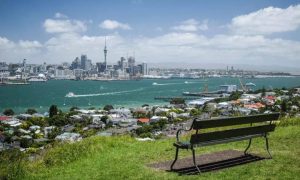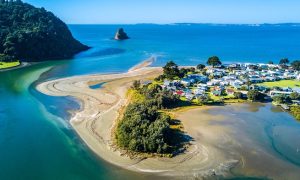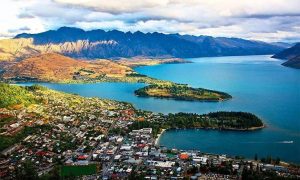With its beautiful natural environment, sound welfare system and high level of educational resources, New Zealand has always been the world's favoriteimmigrantsDestination. For many Chinese families, it not only means a healthier lifestyle, but also symbolizes a better environment for their children to grow up in. 2025.New Zealand immigration policyThere have been some updates and new changes to the application requirements and visa types. In this article, we will organize a complete immigration strategy for you to help those who are interested in applying to make a clearer plan.
I. 2025New Zealand immigrationOverall policy direction
The New Zealand government's core objectives for immigration policy in 2025 are clearer than in previous years:
-
Prioritize attracting skilled personnel -- especially in shortage sectors such as health care, engineering, information technology, and education.
-
Balancing the labor market -- Increase the weight of employer sponsorship in applications to ensure that migrants can move quickly into employment.
-
Increased efficiency of applications -- Streamline some processes and shortenskilled migrantwith the approval time for work visas.
This means that immigration to New Zealand is no longer an era of "purely on the basis of academic qualifications", but more emphasis on the comprehensive ability and actual employment value.
II. Application requirements: hard and soft requirements
The conditions for different visa types vary, but the following are the basic thresholds that are common:
-
English level: Most visas require an IELTS score of 6.5 or higher or equivalent.
-
Education and skills: Bachelor's degree and above are more competitive, and background in shortage industries is a significant plus.
-
(a person's) age: 20-39 year olds are the dominant group, and applicants over 40 need to make up for it through experience or financial advantages.
-
Health and conduct: Medical clearance and no significant criminal record are essential requirements.
III. Explanation of Major Immigrant Visa Types in 2025
1. skilled migrantVisa (Skilled Migrant Category)
The most popular form of immigration.
-
Assessment through a points system (education, work experience, age, language, etc.).
-
Getting sponsored by a local employer is the key to extra points.
-
The approval cycle is usually 6-12 months.
2. Work Visa (Accredited Employer Work Visa)
Suitable for those who are employed before transferring to permanent residence.
-
A contract of employment from a recognized New Zealand employer is required.
-
Opportunity to apply for permanent residence after working for a certain number of years.
3. Investment and entrepreneur visas
Geared toward high net worth individuals.
-
Investor Class II: Investment of N3 million or more with business background is required.
-
Entrepreneur Visa: Driving local employment through entrepreneurship programs and applying for permanent residence upon success.
4. Family reunification visas
Suitable for applicants who already have relatives in New Zealand.
-
Spouse reunification visas and parent reunification visas remain common categories.
-
Tighter policies and longer trial periods.
5. Study abroad transferees
Suitable for young students and families.
-
Accumulate academic qualifications and local work experience while studying abroad.

-
Apply for permanent residence after graduation through a work visa or skilled migration.
IV. Key points of the application process
-
preparatory phase: Determine the immigration path, prepare academic certificates and language scores.
-
Submit EOI (Expression of Interest): Skilled immigrant applicants are required to enter the candidate pool first.
-
Get Invited: Receive an official invitation when eligible.
-
formal application: Submit all supporting documents to enter the approval process.
-
Approval and settlement: You can enjoy the benefits of local residents by obtaining a residence visa.

V. Costs and time commitment
-
Visa Application Fee: About N3000-5000.
-
living expense: About N30-50,000 per year for a single person and higher for a family.
-
cyclicality: most applications are completed within six months to one year.investment immigrationRelatively faster.
VI. Expert recommendations
-
forward planning: Prepare your English grades and academic credentials early.
-
Priority is given to industries in short supply: High opportunities in healthcare, IT, education, engineering, etc.
-
Flexible path selection: Young people can start by studying abroad, working professionals are more suited to work or skilled migration, and high net worth individuals are considering investment.
concluding remarks
New Zealand's immigration policy in 2025 will focus more on 'employability' and 'contribution to society'. For applicants, this means higher requirements, but also means a clearer direction. Whether you are a young student, a working elite or a high net worth family, as long as you plan wisely, you will be able to find a suitable immigration path in New Zealand.






